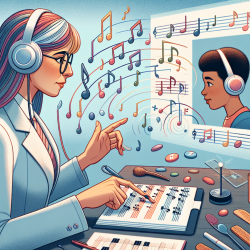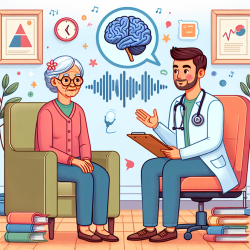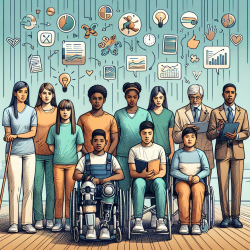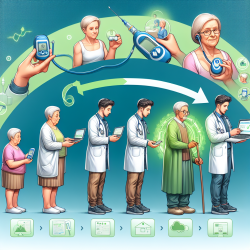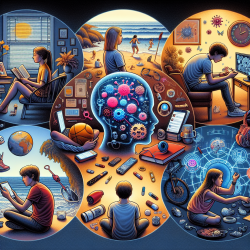Key Findings from the Study
The study investigated the efficacy of a rhythm-based intervention for reading, known as Rhythmic Reading Training (RRT), administered both in-person and remotely. Thirty children aged 8-13 with developmental dyslexia participated in the study. They were divided into two groups: one receiving telerehabilitation and the other receiving in-person therapy. Both groups underwent 10 biweekly sessions of 45 minutes each.Results
- Both telerehabilitation and in-person interventions significantly improved reading speed and accuracy.
- Rapid Automatized Naming (RAN) also showed significant improvement in both groups.
- No significant differences were found between the telerehabilitation and in-person groups, indicating that remote interventions can be as effective as face-to-face therapy.
Implications for Practitioners
These findings are crucial for speech-language pathologists and other practitioners working with children with dyslexia. Here are some actionable steps based on the study:1. Incorporate Rhythm-Based Interventions
The study highlights the effectiveness of rhythm-based interventions like RRT. Practitioners should consider integrating these methods into their therapy sessions, whether conducted in-person or remotely.2. Embrace Telerehabilitation
The comparable effectiveness of telerehabilitation offers a flexible and accessible option for therapy. Practitioners can reach more children, especially those in remote or underserved areas, without compromising the quality of care.3. Utilize Technology for Engagement
The study also underscores the role of technology in maintaining children's engagement and motivation. Interactive and rhythm-based exercises can make therapy sessions more enjoyable and effective.Encouraging Further Research
While the study provides robust evidence supporting telerehabilitation, further research is needed to explore long-term outcomes and the applicability of these findings to other types of learning disorders. Practitioners are encouraged to participate in or initiate research projects to continue advancing the field.Conclusion
The transition to telerehabilitation during the COVID-19 pandemic has proven to be not just a necessity but a valuable opportunity to innovate therapeutic practices. By incorporating rhythm-based interventions and embracing technology, practitioners can significantly improve outcomes for children with dyslexia.To read the original research paper, please follow this link: Dyslexia Telerehabilitation during the COVID-19 Pandemic: Results of a Rhythm-Based Intervention for Reading
